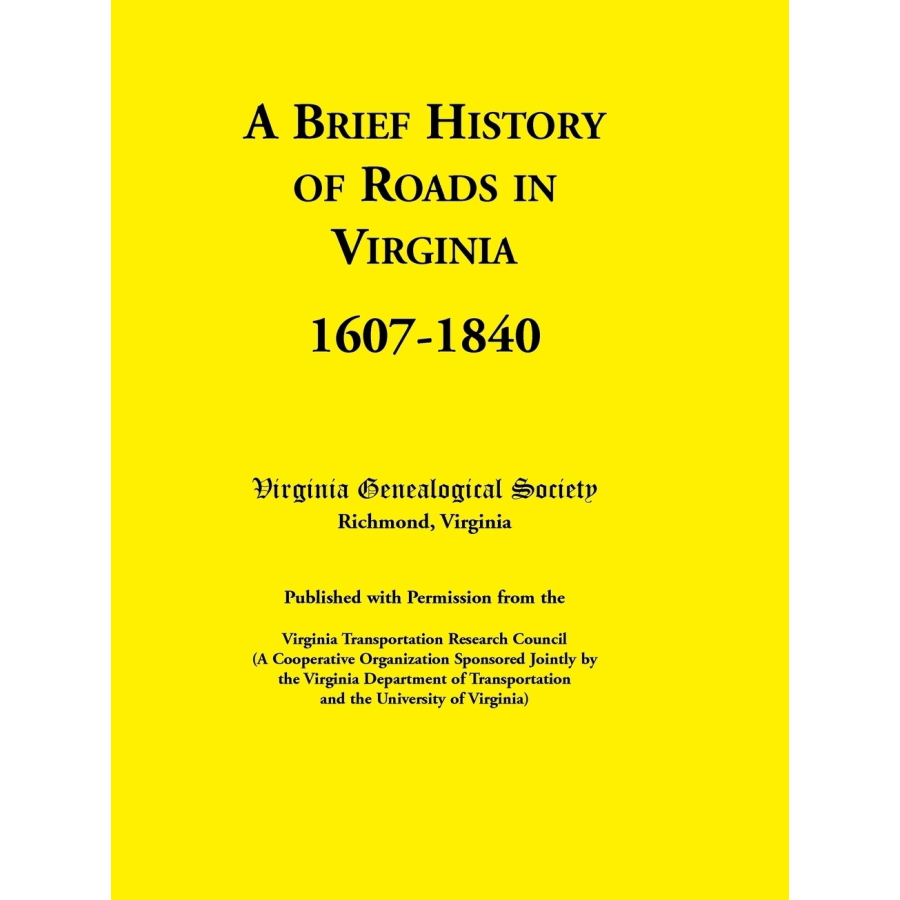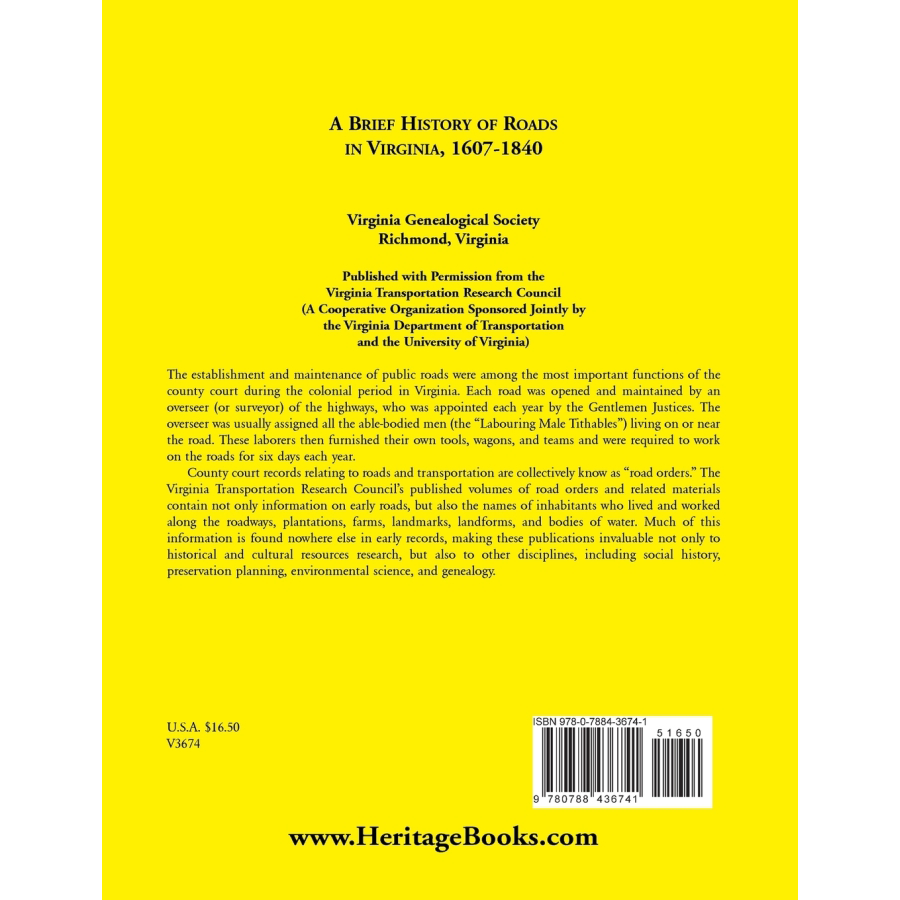A Brief History of Roads in Virginia, 1607-1840
Couldn't load pickup availability
The establishment and maintenance of public roads were among the most important functions of the county court during the colonial period in Virginia. Each road was opened and maintained by an overseer (or surveyor) of the highways, who was appointed each year by the Gentlemen Justices. The overseer was usually assigned all the able-bodied men (the "Labouring Male Tithables") living on or near the road. These laborers then furnished their own tools, wagons, and teams and were required to work on the roads for six days each year. County court records relating to roads and transportation are collectively know as "road orders." The Virginia Transportation Research Council's published volumes of road orders and related materials contain not only information on early roads, but also the names of inhabitants who lived and worked along the roadways, plantations, farms, landmarks, landforms, and bodies of water. Much of this information is found nowhere else in early records, making these publications invaluable not only to historical and cultural resources research, but also to other disciplines, including social history, preservation planning, environmental science, and genealogy. Published With Permission from the Virginia Transportation Research Council (a Cooperative Organization Sponsored Jointly by the Virginia Department of Transportation and the University of Virginia).
Virginia Genealogical Society
(1977, 2003), 2005, 8.5" x 11", paper, 50 pp.
ISBN: 9780788436741
101-V3674

